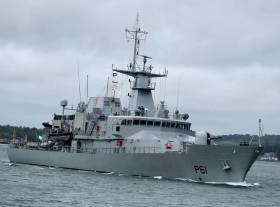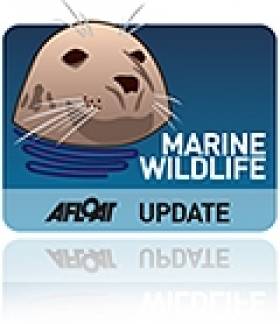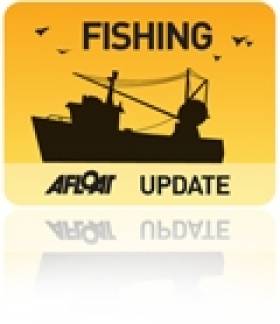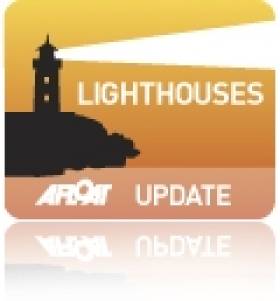Displaying items by tag: protected
Hi-Tech Sea Cables State 'Must Protect'
A naval officer says it is high time that the State defends its critical national infrastructure by protecting the transatlantic cables that pass through Irish waters.
As the Irish Examiner reports, Lieutenant Shane Mulcahy, attached to the Naval Operations Command Centre, said Ireland needs to address the “vulnerabilities” of its undersea cable network, given how dependent our digital economy is on them. He said that around three-quarters of transatlantic cables in the northern hemisphere pass through or near Irish waters, the majority of them along a corridor less than 160km wide.
Lt Mulcahy said these cables are vulnerable to natural hazards, fishing anchors, and more hostile acts, including attack by intelligence or military agencies. He said the cables carry 97% of global data transmissions, with modern satellites accounting for just 3%.
More can be read by clicking here.
'Rogue' Anglers May Shoot Seals Threatening NI Fish Stocks
#MARINE WILDLIFE - Northern Ireland's Green Party has warned that "rogue" anglers may shoot seals that are consuming their fish stocks unless they are relocated, the Belfast Telegraph reports.
The protected seals have been getting into the River Quoile in Co Down, allegedly by way of a damaged fish pass, and decimating the area's fish stocks - much to the consternation of local anglers.
Earlier this week Leisure Minister Carál Ní Chuilín confirmed in a response to a question from Green Party MLA Steven Agnew that department officials have requested the Rivers Agency to carry out repairs on the fish pass.
But she also said that no action can be taken to remove seals from the river "without the approval of the Northern Ireland Environment Agency", adding that her department "does not have the specialist knowledge and equipment to remove the seals".
A Green Party spokesperson described the repair work as "absolutely vital because even if the seals are safely removed from the Quoile they will only make their way back in if the fish pass is not repaired.
"And a rather worrying consideration is that a very small rogue element would be prepared to shoot the seals if a solution is not forthcoming.”
Seal shootings have been much in the news as of late, with gardaí in Waterford investigating attacks on four animals in Tramore.
Pioneering Programme for Isle of Man Scallop Fishery
#FISHING - Conservationists and the fishing industry have joined forces in a new venture to evaulate the state of the Isle of Man's scallop fishery, as the Guardian reports.
Both sides will co-manage the 35-square-mile Ramsey marine nature reserve in the Irish Sea, collecting data to show what progress the scallops have made since fishing in the area was banned in 2009.
It is hoped that the study will lead to a renewing of leases for scallop fishing, which is worth up to £12 million annually to the Isle of Man's economy - though industry leaders have doubts that the new arrangement will serve the island's fishermen.
Some 2.6% of Manx waters are protected, with more than 1% 'highly protected', which is in stark contrast to the rest of the United Kingdom after plans for a national network of conservation zones were shelved till at least next year.
The Guardian has much more on the story HERE.
Mutton Island Lighthouse To Shine Once More
The refurbished Mutton Island lighthouse in Galway Bay will open to tour groups on a regular basis next year, the Galway City Tribune reports.
Once one of the final landmarks of the city seen by emigrants leaving on the 'coffin ships' bound for the United States in the Great Famine, its light last shone in 1977.
The protected lighthouse and its island were purchased by Galway City Council for a total of £2, and since then the 18th-century building fell into disrepair - although the island thrived as a sanctuary for artic terns and Claddagh swans.
But in 2005 a project was intitiated by Galway City Council and the Galway Civic Trust, involving FÁS trainees to restore the lighthouse and its grounds to their former glory, and the fruits of this labour are set to be unveiled next spring.
Recent free tours of the building for Hertiage Week were hugely popular, providing high hopes for the lighthouse and its gardens to become a valuable new amenity for the City of the Tribes.
The Galway City Tribune has more on the story HERE.



























































